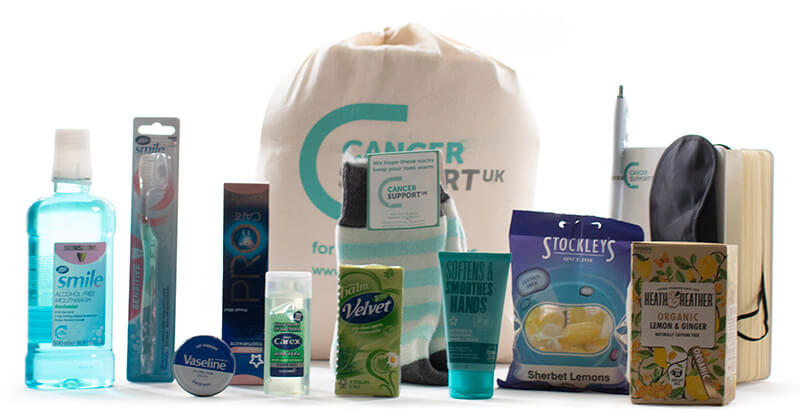
Cancer can have a profound impact on masculine identity
Key challenges for men facing a cancer diagnosis
Men with cancer face the effects of gender discrimination, as well as societal and cultural taboos.
Headline statistics for men with cancer
- In males in the UK, there are around 193,000 new cancer cases every year (2016-2018)
- Prostate cancer is the most common cancer in men.
- More than 52,000 men are diagnosed with prostate cancer every year on average – that’s 144 men every day.
- Among men, prostate cancer, lung cancer and colorectal cancer account for 50% of cancers diagnosed.
- Nearly 1 in 2 people born in the UK in 1961 will be diagnosed with some form of cancer during their lifetime.
Men find it hard to talk about cancer
Men are notably reluctant to talk about personal emotional issues, which is not surprising as society expects them to be brave and emotionally stoic. Because men aren’t encouraged to talk about their feelings as much as women, it is a challenge for them to have those types of conversation.
Some cancers are extremely sensitive, such as testicular cancer or prostate cancer, which men find hard to discuss.
It’s difficult for men to put themselves in a vulnerable position – men are supposed to be tough and to hide their problems.
A mixture of peer pressure and pride causes men to suppress their emotions and to be self-reliant. They instinctively want to protect the people closest to them and to avoid being a burden to their family, friends and work colleagues.
Cancer impact on masculine identity
Cancer side effects in particular can be very distressing for men, resulting in social stigmatisation, which can be difficult to handle. It can result in feelings of shame, hopelessness and isolation. Consequently men are reluctant to ask for help and even get treatment.
Stigma can even discourage men from attending a cancer screening.
There are several ways in which cancer can affect men:
- Physically (i.e. hair and muscle loss, fatigue (tiredness) and incontinence. Fatigue challenges a man’s ability to play sport or exercise, which is an important form of identity as well as a means of socializing with other men.
- Sexually (reduced sexual drive and impotence)
- economically (i.e. the ability to act as a provider/protector of the family)
- emotionally (negative self-image, low self-esteem, isolation, anxiety, depression, mood swings).
How can friends, family members, and communities better support men who are coping with cancer?
The most important way to support a man who is diagnosed with cancer is to let them know that they can talk about cancer. Ask them how they would like to be supported.
Cancer is so individual and affects everyone differently, so it is important that family/friends/employers/colleagues recognise this and respond appropriately.
Practical support for men with cancer
There are a number of ways to offer practical support to a man facing cancer.
- Order a free Cancer Kit from Cancer Support UK. There are four different types of kit, depending on the type of treatment being given. Each bag contains items to practically support someone going through cancer, from sensitive toothpaste to cosy socks.
- Hugs can make a big difference or a squeeze of the hand.
- It’s always best to check in and ask what they need – never assume you know what they need.
- Even just sending a card or a text or making a phone call to say you are thinking of them. Keep this contact up, these small messages make a difference even after treatment has ended.
- Cancer Support UK’s Cancer Coach programme is available to anyone with a stage 3 and below cancer diagnosis, who has completed their physical cancer treatment and is experiencing low mood, anxiety and worry, and doesn’t know how to move forward in their recovery. The course takes participants through a series of weekly facilitated group sessions, run for a six-week period over the telephone or online video. Participants are supported by their coach in a peer support group to explore tools and coping strategies to help them move forwards with their lives post treatment. The course is free, completely confidential and accessible from the comfort and privacy of home.
- Don’t be afraid to reach out for support yourself. Call a support line to share how you are feeling without burdening the person who is going through cancer. There are plenty of free online resources and communities, as well as support lines.
- If you can, attend cancer appointments with your family member, it can be extremely helpful for them if you can take notes and be another “pair of ears”, to discuss what was said in the appointment afterwards.
- Offer lifts to hospital appointments
- Get them a new book or magazine to read during treatment
- Offer a home-cooked meal, or shopping, as someone going through cancer treatment can get tired very easily.
- Cancer Support UK has also compiled this list of useful charities and organisations, free for people to access:
You could also suggest that they check their emotional wellbeing with our Cancer Compass checker. In just a few seconds they can discover the practical and emotional support we provide. Click here to find out which area of support might be right for someone you know.
Managing relationships
It’s important to allow the the person with cancer to make the decision on what support to accept – this makes them feel less helpless. Let them know that you are there if they want to talk to you. Share a joke or laugh with them – keep your relationship as normal and balanced as possible.
What should you avoid saying?
People are often afraid of saying the wrong thing to a men with cancer, but emotional support can make a big difference to their quality of life.
It’s important to say if you are feeling awkward and to acknowledge the situation, rather than pretending it’s not happening.
Never make assumptions on how people are feeling. Focus on the listening rather than worrying about what to say.
Don’t bring up someone else’s cancer story. Cancer is so unique that listening to how someone else went through cancer isn’t helpful or reassuring. Don’t compare someone’s situation to someone else you know, as each cancer experience is unique.
Don’t ask things like are you feeling better?
Avoid saying you know how someone feels.
Don’t tell someone to be strong and positive as it puts pressure on them to behave in a certain way.
Don’t tell someone that they are brave – they didn’t choose to have cancer and they may be feeling very frightened. Telling them they are brave, puts additional pressure on them to behave in a certain way.”
What should you say to a man with cancer?
It is really important to have open conversations.
- Avoid asking closed questions, such as “Are you okay?”, which elicit one word or short answers and require follow up questions.
- Instead start conversations by inviting them to give you more information. Let them set the agenda for the discussion. They may want to talk to you about a practical concern or an emotional one.
- So let them take the lead and avoid putting your own thoughts and emotions on to them. It’s about how they are feeling, rather than how you expect them to be feeling.
- Start the conversation very simply by asking ‘how are you feeling today?’ Don’t take it personally if someone doesn’t want to talk about their cancer and respect their privacy.
Cancer is an overwhelming experience and while it’s important to keep checking in on your loved one, don’t overload them with questions or dictate what they should/shouldn’t do or what they should be feeling. Always ask them what support they want, as their needs will change throughout their journey.



